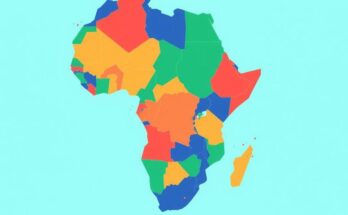Ecuador’s President Daniel Noboa claimed the first-round election results were marred by irregularities, despite a narrow lead over opponent Luisa González. Election observers from the OAS and EU reported no widespread issues, emphasizing the integrity of the voting process. Analysts linked these allegations to broader concerns about democratic standards and escalating violence in the country, particularly related to narcotics trafficking.
Ecuador’s President Daniel Noboa has raised unsubstantiated claims regarding irregularities in the initial round of the presidential election, despite securing a narrow lead over his leftist opponent, Luisa González. In a recent interview streamed via the presidency’s social media, Noboa alleged that discrepancies were evident in vote counts across various provinces, contradicting the Organization of American States’ (OAS) quick count results, which reflected different figures.
Additionally, Noboa insinuated that armed groups were coercing voters to favor González, intensifying the political climate. Following his statements, the OAS reaffirmed their findings, asserting that the Ecuadorian National Electoral Council’s results aligned with their data and that no substantial irregularities were detected.
González also expressed her distrust in the electoral process, voicing concerns about inconsistencies in vote counts. The European Union’s observation mission endorsed the election process as transparent and well-organized, countering the emerging narratives of fraud that rose towards the campaign’s conclusion.
Analysts have noted that these allegations amplify the gradual decline of democratic standards in Ecuador. Security analyst Jean Paul Pinto commented that Noboa often resorts to decrees for making significant decisions, such as deploying the military to combat domestic gangs and initiating the construction of a new prison for high-profile criminals.
The political discourse reflects underlying tensions, as rampant crime continues to destabilize Ecuador. Noboa’s claims about armed groups suggest a troubling narrative of the nation being influenced by drug trafficking networks. Pinto emphasized that such claims are concerning, insinuating a lack of governmental control over specific regions where violence is most pronounced.
In summary, President Noboa’s allegations of electoral irregularities, although unfounded according to multiple international observers, highlight persistent political tension in Ecuador. The situation reveals a complex interaction between rising violence, crime cartels, and political narratives. The democratic integrity of the electoral process remains under scrutiny as both leaders navigate a tumultuous political landscape marked by distrust and allegations of misconduct.
Original Source: www.wral.com




